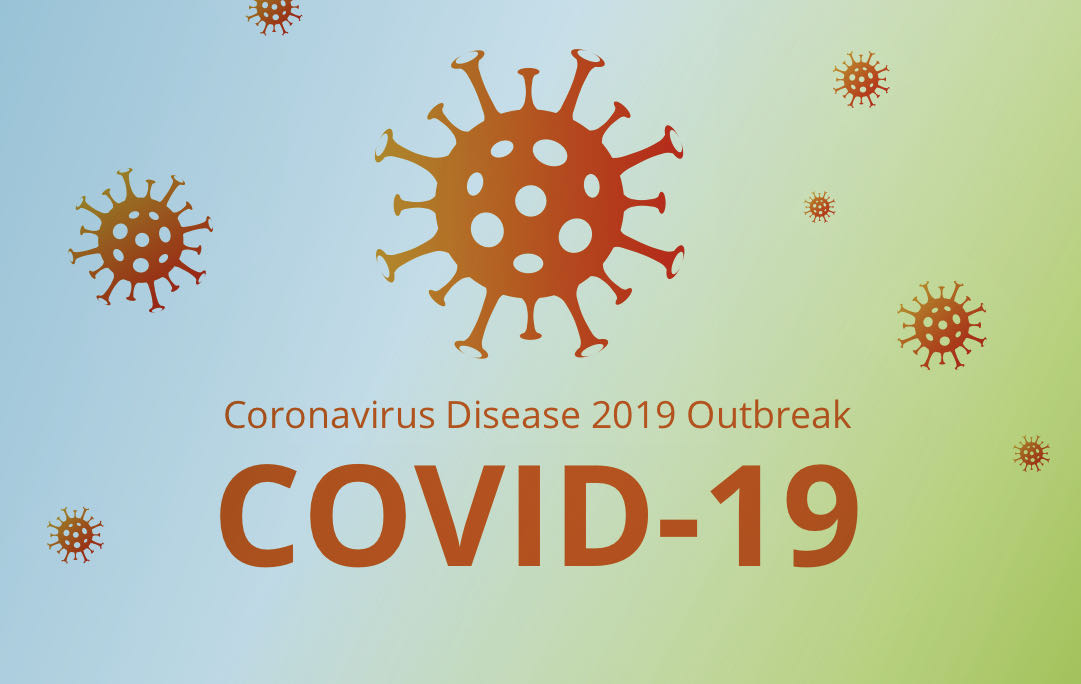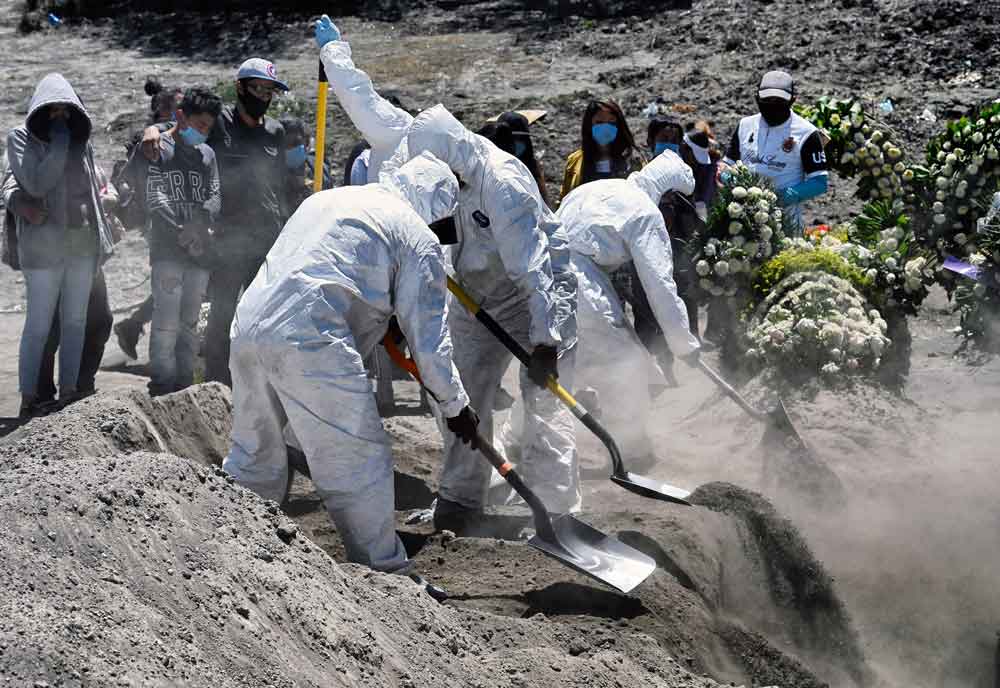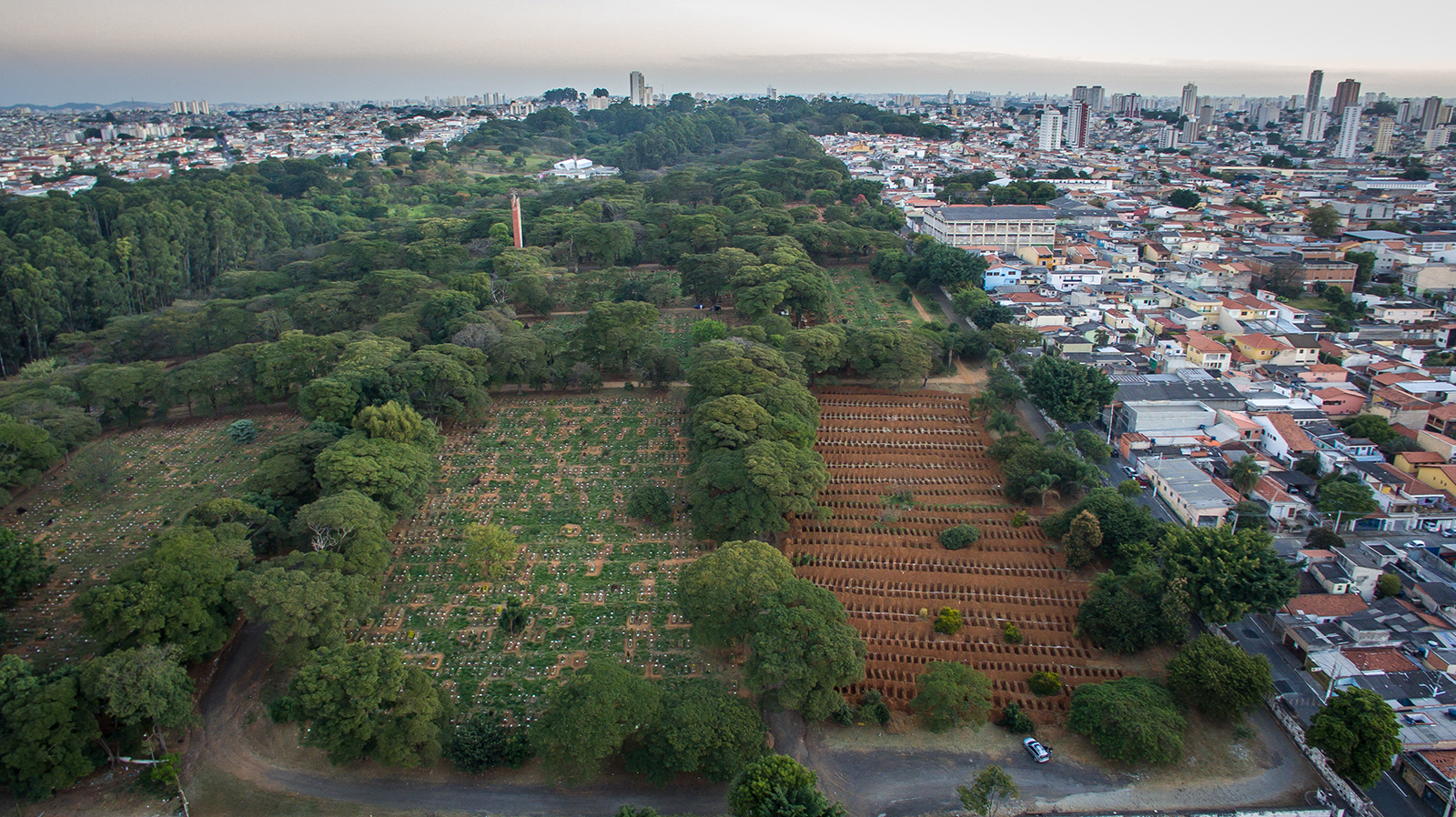
 i_need_contribute
i_need_contribute




|
Country, |
Total |
New |
Total |
|
World |
6,692,694 |
+129,998 |
392,298 |
|
1,924,051 |
+22,268 |
110,173 |
|
|
615,870 |
+31,890 |
34,039 |
|
|
441,108 |
+8,831 |
5,384 |
|
|
287,740 |
+334 |
27,133 |
|
|
281,661 |
+1,805 |
39,904 |
|
|
234,013 |
+177 |
33,689 |
|
|
226,713 |
+9,889 |
6,363 |
|
|
184,923 |
+498 |
8,736 |
|
|
183,198 |
+4,284 |
5,031 |
|
|
167,410 |
+988 |
4,630 |
|
|
164,270 |
+3,574 |
8,071 |
|
|
152,444 |
+767 |
29,065 |
|
|
118,292 |
+4,664 |
1,356 |
|
|
101,238 |
+3,912 |
11,729 |
|
|
93,726 |
+641 |
7,637 |
|
|
93,157 |
+1,975 |
611 |
|
|
85,264 |
+4,801 |
1,770 |
|
|
83,022 |
+1 |
4,634 |
|
|
63,741 |
+1,581 |
45 |
|
|
58,767 |
+82 |
9,548 |
|
|
57,563 |
+2,423 |
781 |
|
|
46,942 |
+209 |
5,990 |
|
|
45,981 |
+865 |
253 |
|
|
41,883 |
+1,080 |
4,562 |
|
|
40,966 |
3,486 |
||
|
40,792 |
+3,267 |
848 |
|
|
37,018 |
+659 |
273 |
|
|
36,922 |
+517 |
24 |
|
|
35,120 |
+1,766 |
1,087 |
|
|
33,592 |
+331 |
1,455 |
|
|
30,913 |
+20 |
1,921 |
|
|
29,921 |
+562 |
236 |
|
|
29,767 |
+1,152 |
1,126 |
|
|
28,818 |
+585 |
1,721 |
|
|
25,411 |
+588 |
747 |
|
|
25,142 |
+31 |
1,664 |
|
|
25,048 |
+361 |
1,117 |
|
|
20,382 |
+634 |
984 |
|
|
20,197 |
+929 |
608 |
|
|
19,907 |
+238 |
1,305 |
|
|
18,319 |
+279 |
520 |
|
|
18,054 |
+787 |
300 |
|
|
17,495 |
+118 |
291 |
|
|
17,018 |
+32 |
903 |
|
|
16,805 |
+34 |
670 |
|
|
15,044 |
+435 |
363 |
|
|
14,316 |
+778 |
67 |
|
|
13,296 |
+481 |
21 |
|
|
12,067 |
+271 |
52 |
|
|
11,811 |
+40 |
582 |
|
|
11,638 |
+647 |
400 |
|
|
11,629 |
+39 |
273 |
|
|
11,571 |
+48 |
246 |
|
|
11,516 |
+350 |
323 |
|
|
11,221 |
+697 |
176 |
|
|
9,831 |
+98 |
681 |
|
|
9,494 |
+56 |
326 |
|
|
9,018 |
+223 |
315 |
|
|
8,885 |
+337 |
38 |
|
|
8,840 |
+672 |
271 |
|
|
8,504 |
+27 |
238 |
|
|
8,247 |
+277 |
115 |
|
|
8,003 |
+81 |
208 |
|
|
7,240 |
+11 |
102 |
|
|
6,911 |
322 |
||
|
6,789 |
+204 |
203 |
|
|
6,522 |
+262 |
78 |
|
|
5,760 |
+174 |
143 |
|
|
5,714 |
+215 |
333 |
|
|
5,690 |
+163 |
234 |
Source : https://www.worldometers.info/coronavirus/

The anti-malaria drug hydroxychloroquine has been heavily promoted by President Trump and others, but there is no evidence that it can prevent or treat Covid-19. Credit...George Frey/Reuters
Two studies on Covid-19 were retracted on Thursday by the scientific journals in which they had appeared.
The studies, published in The Lancet and The New England Journal of Medicine in May, had produced astounding results and altered the course of research into the pandemic.
The Lancet paper reported dismal findings about the use of chloroquine and hydroxychloroquine to treat Covid-19 patients. It led to the suspension of some clinical trials of the medications, including by the World Health Organization. (Some have since resumed.)
President Trump has repeatedly promoted hydroxychloroquine despite the lack of evidence that it works against the virus. His endorsement had the effect of politicizing scientific questions that normally would have been left to dispassionate researchers.
The Lancet paper, which was purportedly based on data from a huge, privately held registry of patient records from hundreds of hospitals around the world, had concluded that the anti-malaria drugs were associated with dramatically higher rates of heart arrhythmias and deaths in Covid-19 patients. The database belonged to a company called Surgisphere, which is owned by Dr. Sapan Desai, one of the four co-authors.
The other three co-authors, including Dr. Mandeep R. Mehra, a professor at Harvard Medical School, retracted the article on Thursday after their attempts to verify the database’s veracity and authenticity were stymied by Dr. Desai.
Later on Thursday, The New England Journal of Medicine retracted a heart study that was published in May by the same authors, using data from the same registry. That study was said to analyze 8,910 Covid-19 patients hospitalized through mid-March at 169 medical centers in Asia, Europe and North America. The authors concluded that cardiovascular disease increased their risk of dying.
“Because all the authors were not granted access to the raw data and the raw data could not be made available to a third-party auditor, we are unable to validate the primary data sources underlying our article,” the authors wrote in the retraction of the study.

Workers attend to a patient at the emergency room of Lincoln Medical Center in the Bronx.Credit...Erin Schaff/The New York Times
The Trump administration on Thursday released new requirements for states to report coronavirus data based on race, ethnicity, age and sex of individuals tested for the virus, in an effort to respond to demands from lawmakers for a better picture of the pandemic.
All laboratories will be required to send demographic data to state or local public health departments based on the individual’s residence, according to details released by the Department of Health and Human Services.
Dr. Robert R. Redfield, the director of the Centers for Disease Control and Prevention, faced a barrage of questions on Thursday from House lawmakers at a health subcommittee hearing about his agency’s often halting response to the pandemic, and what some members of Congress said was its failure to anticipate the pandemic’s effect on black and Hispanic communities.
“We didn’t have the data we needed to be able to answer that in a responsive way,” Dr. Redfield conceded.
Public health experts have criticized the Trump administration for failing to address the disproportionate effects of the virus on communities of color. The questioning came as large protests continued across the United States over the killing of George Floyd, a black man who died last week in police custody after a white officer knelt on his neck for nearly nine minutes.
The patients who deluged the emergency room at Detroit Medical Center in March and April exhibited telltale symptoms of the coronavirus: high fevers and infection-riddled lungs that left them gasping for air.
With few treatment options, doctors turned to a familiar intervention: broad-spectrum antibiotics, the shot-in-the dark medications often used against bacterial infections that cannot be immediately identified. They knew antibiotics were not effective against viruses, but they feared the patients could be vulnerable to life-threatening secondary bacterial infections.
“During the peak surge, our antibiotic use was off the charts,” said Dr. Teena Chopra, the hospital’s director of epidemiology and antibiotic stewardship. She and other doctors across the United States who liberally dispensed antibiotics in the early weeks of the pandemic said they soon realized their mistake.
Now, doctors nationwide are seeking to draw lessons from their overuse of antibiotics, a practice that can spur resistance to lifesaving drugs as bacteria mutate and outsmart the drugs. Antimicrobial resistance is a mounting threat that claims 700,000 lives annually — a global health crisis that has been playing out in slow motion behind the scenes while the coronavirus took center stage.
In recent weeks, public health experts have been warning that the same government inaction that helped foster the rapid spread of the coronavirus could spur an even deadlier epidemic of drug-resistant infections. The United Nations warns such an epidemic could kill 10 million by 2050 if serious action is not taken.
The pipeline for new antimicrobial drugs has become perilously dry. Over the past year, three American antibiotic developers with promising drugs have gone out of business, and most of the world’s pharmaceutical giants have abandoned the field.
Legislation in Congress to address the broken antibiotics marketplace has failed to gain traction in recent years, but public health experts are hoping the coronavirus pandemic can help break the political logjam in Washington.

A wild elephant on a road in Thailand’s Khao Yai National Park in November.Credit...Adam Dean for The New York Times
Pandemic lockdowns have given nature a breather around the world, bringing animals to unexpected places. Cougars toured the deserted streets of Santiago, the Chilean capital. Wild boars have strolled through the lanes of Haifa, Israel. Fish catches off Vietnam are teeming again.
In Thailand, Khao Yai National Park, the country’s oldest, has been closed to human visitors for the first time since it opened in 1962. The upshot? Its 300 or so elephants have been able to roam freely, venturing onto paths once packed with humans.
With few cars around, the elephants, the park’s dominant species, stroll along roads, chomping on foliage without needing to retreat to dangerous corners of the forest where cliffs meet waterfalls. Rarely spotted animals, like the Asian black bear or the gaur, the world’s largest bovine, have emerged, too.
“The park has been able to restore itself,” said Chananya Kanchanasaka, a national park department veterinarian. “We are excited to see the animals are coming out.”
The reprieve is notable in part because Thailand is a country where the bond with nature has long been framed as one of domination — as the jungle consuming people or vice versa.
Beyond the pillaging of its own rainforests, Thailand is a key way station on global wildlife trafficking routes, with horns, tusks and scales from as far away as Africa making their way to China.

AstraZeneca has now secured the capacity to manufacture as many as two billion doses of a potential coronavirus vaccine by next year.Credit...Jeff Chiu/Associated Press
The Britain-based pharmaceutical company AstraZeneca said Thursday that it had struck a deal with a vaccine manufacturing giant, Serum Institute of India, to produce a billion doses of a potential virus vaccine for distribution to low and middle income countries.
The potential vaccine, devised in a laboratory at Oxford, is one of several candidates now in clinical trials and has not been proven effective. But governments and nonprofit foundations are risking hundreds of millions of dollars to arrange for the production of large volumes of several potential vaccines, including AstraZeneca’s, so that any that are approved can be rapidly distributed.
Should its vaccine be proven effective, AstraZeneca has now secured the capacity to manufacture as many as two billion doses by next year, the company said. If the current trials succeed, the vaccine might be approved for emergency use in the United States and elsewhere as soon as this fall.
AstraZeneca said that two nonprofit organizations had agreed to pay $750 million for the manufacturing and procurement of 300 million doses by the end of this year. They are the Coalition for Epidemic Preparedness Innovation, a relatively new Norway-based public-private partnership, and the older Geneva-based Gavi vaccine alliance. Both receive funding from several Western governments as well as from the Bill & Melinda Gates Foundation.
The U.S. government has agreed to pay for the production of as many as 300 million doses, and Britain has agreed to pay for as many as 100 million.
AstraZeneca’s chief executive, Pascal Soriot, said in a video conference that during the pandemic, the company would distribute the vaccine “at no profit” and allow governments and donors to audit its finances to ensure that it was not profiting off the vaccine.
“We don’t usually do this,” he added. “It is quite a unique process.”

A mail carrier in El Paso, Tex., in April.Credit...Paul Ratje/Agence France-Presse — Getty Images
A federal appeals court on Thursday sided with Texas Republicans in their legal battle to restrict voting by mail during the pandemic, striking down a lower-court ruling that would have allowed voters who fear contracting the virus to cast ballots by mail instead of in person.
The decision by a three-judge panel of the appellate court, the United States Court of Appeals for the Fifth Circuit in New Orleans, was only a temporary victory for the state and its Republican attorney general, Ken Paxton. The Fifth Circuit only nullified the lower court’s ruling while the case proceeds, and the Texas Democratic Party, which brought the lawsuit against the state, suggested it would appeal to the U.S. Supreme Court.
“We find ourselves in the midst of a once-in-a-century pandemic,” the chairman of the Texas Democratic Party, Gilberto Hinojosa, said in a statement. “Voters who are rightfully worried about the safety of in-person voting should have the option to vote by mail.”
A legal back-and-forth has played out for weeks between the state’s Republican leaders, Democrats and judges in both state and federal courts. At issue are Texas’ rules limiting those who can cast mail-in ballots and whether healthy voters who fear contracting Covid-19 meet the legal definition of a disabled voter.
In Texas, voters can cast mail-in ballots only if they are going to be absent from the county, have a disability that prevents them going to the polling place, are aged 65 or older or are confined in jail. Thursday’s appellate decision keeps those rules in place, for now, for the two elections this year in Texas — a primary runoff election in July and the November general election.
The Texas Democratic Party, voting rights groups and individual voters who sued Texas said the state’s strict interpretation of disability in its election code, and the age restrictions that make mail-in ballots available only to those 65 and older, will decrease the turnout of minority voters, in violation of the Voting Rights Act, and will force Texans to choose between their health and their right to vote.
But Mr. Paxton’s office said in court documents that the election code “does not permit an otherwise healthy person to vote by mail merely because going to the polls carries some risk to public health.”
The Fifth Circuit, regarded as one of the most conservative federal appellate courts in the country, ruled on Thursday that the spread of the coronavirus has not given judges “a roving commission” to rewrite state election codes and that even with the age restrictions, there was no evidence Texas had denied or abridged the right to vote.

A group at ordering food and drinks in Williamsburg in May.Credit...Sarah Blesener for The New York Times
Mayor Bill de Blasio of New York City said on Thursday that the city could begin a second phase of reopening “as early as the beginning of July,” in which offices, stores and personal-service businesses like barber shops could reopen with restrictions, and restaurants could offer outdoor dining.
The city has yet to start reopening at all, but the mayor has reiterated that the city was on track to begin the first phase on Monday. Under state guidelines, regions in Phase 1 that continue to meet health-related benchmarks can enter Phase 2 after two weeks.
After seven days of crowded, mostly peaceful protests against racism and police brutality in New York City, the governor said that the state’s testing criteria were being expanded to include anyone who had participated in the protests and encouraged people to tested. The city announced universal testing earlier this week.
Gov. Andrew M. Cuomo also said that demonstrators should inform others that they had been to a protest and to behave as if they had been exposed. Statewide, there were an additional 52 virus-related deaths, he said. Nine counties ringing the city are expected to enter Phase 2 next week, he said, and the state is allowing drive-in and drive-through graduations.
As more Americans return to offices and stores after months stuck indoors, new coronavirus clusters continue to emerge and the national caseload is approaching two million. Here’s a look around the country:
In Las Vegas several casinos reopened on Thursday, with the Bellagio reactivating its fountain and many welcoming gamblers back with social distancing and temperature screening measures put in place.
In northeastern Mississippi, a recent funeral spread the virus to at least nine people, some of whom were from other states. In Arkansas, at least 35 people at a factory that makes boots became ill. And in Kansas City, Mo., health officials announced a cluster this week of more than 200 employees at a facility that makes paper plates and cups.
Most of the largest case groupings remain in nursing homes, prisons and food processing facilities, all places where social distancing is difficult. But as more of the country reopens, and as testing and contact tracing capabilities expand, outbreaks are emerging in new settings.
At least 26 workers on a construction site in Augusta, Maine, tested positive, along with at least 24 people at a Walmart distribution center in Colorado and at least 16 at a convenience store in Kansas.

Gravediggers at the Vila Formosa cemetery in São Paulo, Brazil, last week.Credit...Victor Moriyama for The New York Times
The pandemic is ebbing in some of the countries that were hit hard early on, but the number of new cases is growing faster than ever worldwide, with more than 100,000 reported each day.
Twice as many countries have reported a rise in new cases over the past two weeks as have reported declines, according to a New York Times database. On May 30, more new cases were reported in a single day worldwide than ever before: 134,064. The increase has been driven by emerging hot spots in Latin America, Africa, Asia and the Middle East.
Over all, there have been more than 6.3 million reported cases worldwide and more than 380,000 known deaths. More than a quarter of all known deaths have been in the United States. But the geography of the pandemic is changing quickly.
The increases in some countries can be attributed to improved testing programs. But in many places, it appears that the virus has only now arrived with a wide scope and fatal force. Here is a look at some of the countries where the number of new cases has been doubling every two to three weeks.
Source: https://www.nytimes.com/2020/06/04/world/coronavirus-us-update.html
From CNN's Faith Karimi

Protesters gather to demonstrate the death of George Floyd on June 4, in New York. Angela Weiss/AFP/Getty Images
In little over a week, Americans have gone from taking their first hesitant steps outside again to marching in tightly packed crowds all over the country.
Any uncertainty about venturing out during a coronavirus pandemic has seemingly been cast aside to shed light on police brutality after watching the video of George Floyd pinned under the knee of a Minneapolis officer. They've chanted slogans and shouted Floyd's name, some without masks. During arrests, police have loaded them into vehicles and holding cells -- without social distancing.
But despite the sudden shift, the truth is coronavirus isn't over. So far this week, 4,430 people have been reported dead in the US, an average of 886 a day. Of the total number of deaths this week, 1,036 were reported in the past 24 hours.
And by late Thursday, the virus had killed more than 108,000 people in the United States and infected at least 1.8 million, according to Johns Hopkins University.
Officials fear those numbers will rise significantly with the protests.
From CNN Health’s Jen Christensen

Dr. Rhonda Flores looks at protein samples at Novavax labs, which is developing a vaccine for the coronavirus, in Rockville, Maryland, on March 20. Andrew Caballero-Reynolds/AFP/Getty Images
Novavax, Inc., a Maryland-based biotech company, said Thursday it landed a major US Department of Defense contract to make its coronavirus vaccine candidate.
The Defense Department will provide up to $60 million in funding for the vaccine, which goes by the experimental name NVX-COV2373. The company will make several of the components in the US.
Novavax will deliver 10 million doses to the Department of Defense in 2020 that could be used in late-stage clinical trials or under an Emergency Use Authorization if the US Food and Drug Administration approves the vaccine.
How far away is the vaccine?: Novavax started a Phase I safety trial with volunteers in May. Those results are expected by July. If successful, Novavax will test in a larger number of patients.
Novavax is ahead of several competitors, including Johnson & Johnson, Sanofi and Merck, that are developing a vaccine but are yet started clinical trials, according to the World Health Organization.
Pharmaceutical companies Moderna and AstraZeneca have candidates in clinical trials.
From CNN's Matt Rivers in Mexico City

Workers bury an alleged victim of Covid-19 at the Municipal Pantheon of Valle de Chalco, Mexico, on June 4. Alfredo Estrella/AFP/Getty Images
Mexico health officials said Thursday they had confirmed a record 4,442 new cases -- bringing the overall number of infections in the country to 105,680.
It marked the largest daily increase in new coronavirus cases for the third straight day
Mexico also recorded 816 additional deaths, taking the total toll to 12,545.
From journalist Rodrigo Pedroso in Sao Paulo, CNN’s Shasta Darlington in Sao Paulo, and CNN’s Taylor Barnes in Atlanta

Newly dug, empty graves fill the Sao Luiz cemetery where Covid-19 victims will be buried in Sao Paulo, Brazil, on Thursday, June 4. Andre Penner/AP
Brazil registered a record 1,473 more coronavirus-related fatalities in the 24 hours to Thursday, its health ministry reported, with the country’s death toll now at 34,021.
The new fatalities push Brazil's toll past that of Italy, which has reported 33,689 deaths so far, according to Johns Hopkins University's tally.
Brazil now has the third-highest death toll worldwide, behind the United States and the United Kingdom.
The health ministry also said it registered 30,925 new coronavirus cases over the previous 24 hours, increasing the nationwide total to 614,941.
Senior health ministry official Eduardo Macário acknowledged that the country is facing difficulties even measuring the extent of coronavirus contagion.
“The government has been working to reduce under-reporting, expanding the testing capacity,” he said at a press conference.
From CNN’s Taylor Barnes in Atlanta
Peru reported 137 new coronavirus-related deaths Thursday – raising the national death toll to 5,031, according to the country’s health ministry.
The total number of cases rose to 183,198, an increase of 4,284 from the previous day.
Peru has the second-highest number of coronavirus cases in Latin America, after Brazil, according to Johns Hopkins University's tally.
From CNN's Rodrigo Pedroso in Sao Paulo and Taylor Barnes in Atlanta

Open graves are prepared in the Vila Formosa cemetery in Sao Paulo, Brazil, on April 29. Jonne Roriz/Bloomberg/Getty Images
The number of coronavirus-related cases and deaths in the Brazilian state of Sao Paulo is likely to be under-reported, a state health official said Thursday.
Some of the cases have likely been registered as severe acute respiratory syndrome (SARS) due to the state's low Covid-19 testing capacity, said Paulo Menezes, coordinator of the state’s health ministry.
The state of Sao Paulo registered 5,717 new cases and 285 related deaths in the previous 24 hours – bringing the total in Brazil’s most populous state to 129,200 cases and 5,717 deaths.
But the actual death toll is likely higher, Menezes said.
"When we look at the curve, we see a significant increase of hospitalizations by SARS since February. It's possible that we have SARS cases from Covid-19 that are not diagnosed by lab tests, but this is something that happens all over the world, it's not just something observed here,” he said.
Menezes added that the state of Sao Paulo – which has a population of more than 45 million and is the epicenter of Brazil’s outbreak – currently performs about 8,000 Covid-19 tests daily. In April, that average was about 1,000 tests per day.
The state government forecasts that it will reach the daily testing capacity of European countries like Spain and Italy within three months.
Source: https://edition.cnn.com/world/live-news/coronavirus-pandemic-06-05-20-intl/index.html
Known cases pass 6.6 million worldwide. The number of known coronavirus infections has passed 6.6 million, with 6,601,349 currently confirmed, according to the Johns Hopkins University tracker. Deaths are approaching 390,000, with the current toll at 389,645.
Brazil’s death toll overtakes Italy’s to become third-highest worldwide. Brazil’s total Covid-19 death toll blew past that of Italy on Thursday, as the Health Ministry reported 1,437 deaths in the last 24 hours and 30,925 additional coronavirus cases. The Latin American nation has now reported 34,021 deaths from the coronavirus, trailing only the United States and the United Kingdom.
Ebola drug remdesivir endorsed as a coronavirus treatment in Australia. The antiviral drug remdesivir has been recommended for the treatment of Covid-19 patients in Australia, by the national taskforce bringing together the country’s peak health groups.
South Africa sees record rise in coronavirus cases. South Africa has recorded 3,267 coronavirus cases in 24 hours, the biggest increase since the pandemic hit the country. Africa’s biggest industrial power now has a total of 40,792 infections, the health ministry said. It saw a rise of 56 deaths, bring the total to 848. More than half of the cases are in the Western Cape region where health services are under pressure.
New York governor, Andrew Cuomo, urged protestors to get tested for coronavirus, saying several days and nights of demonstrations in the state after the killing of George Floyd could accelerate the spread. He noted that an estimated 30,000 people have protested in the state.
Death of man after face mask arrest shines light on Mexican police brutality. Mexicans have responded with outrage after a man was found beaten to death hours after he was arrested by police officers for not wearing a face mask in public.Giovanni López, a 30-year-old bricklayer, was detained on 4 May by municipal police officers in the town of Ixtlahuacán de Los Membrillos near Guadalajara.Video of the incident emerged on Wednesday, and shows the police officers with assault rifles forcing López into a police pickup truck as bystanders plead for his release.
Covid-19 causing 10,000 dementia deaths beyond infections, UK research says. There were almost 10,000 unexplained extra deaths among people with dementia in April, according to official figures that have prompted alarm about the severe impact of social isolation on people with the condition. The data, from the Office for National Statistics in England and Wales, reveals that, beyond deaths directly linked to Covid-19, there were 83% more deaths from dementia than usual in April, with charities warning that a reduction in essential medical care and family visits were taking a devastating toll.
Argentina extends lockdown. Argentina has extended a mandatory lockdown in Buenos Aires, the capital, and some other parts of the country until 28 June, as confirmed coronavirus cases continue to rise, surpassing 20,000 earlier in the day.
Virus patients with high blood pressure twice as likely to die: study. Patients with high blood pressure admitted to hospital with coronavirus infections are twice as likely to die as those without the condition, researchers said on Friday.
Tokyo Olympics exec says must watch virus situation for Games decision. A Tokyo 2020 executive board member said on Friday that organisers will need to monitor the coronavirus situation until next spring to decide whether to hold the Summer Olympics next year, Kyodo News reported.
Turkey announces weekend lockdown in 15 cities. Turkey will impose a weekend lockdown in 15 cities as part of efforts to prevent the spread of the novel coronavirus, the interior ministry said.In a statement, the ministry said bakeries and certain shops could operate during the lockdown.Turkey has had 167,410 Covid-19 cases, according to Johns Hopkins University.
Low Covid-19 figures for Africa are “broadly accurate”, the World Health Organization’s director for Africa, Dr Matshidiso Moeti, has said. There were concerns that low levels of testing, poor infrastructure and a lack of cooperation from some governments may be disguising the true extent of the disease’s spread.
US pandemic jobless claims passed 42m after another 1.9 million people filed for unemployment benefits last week. The pace of layoffs has slowed dramatically from its peak of 6.6m at the start of April as states begin to relax quarantines. Last week was the ninth consecutive week of declines.